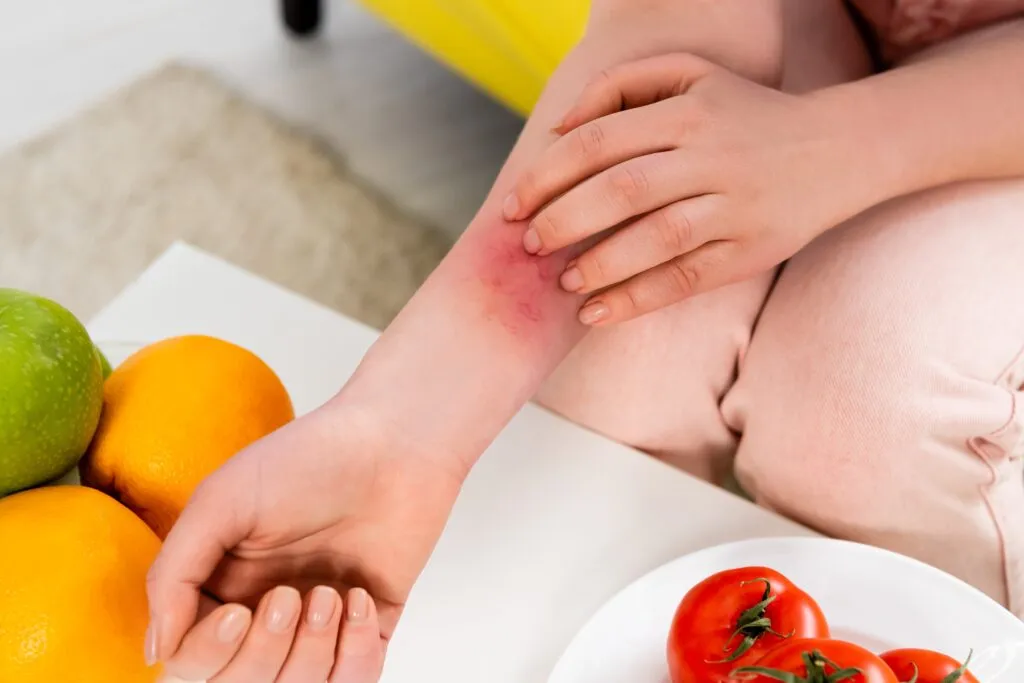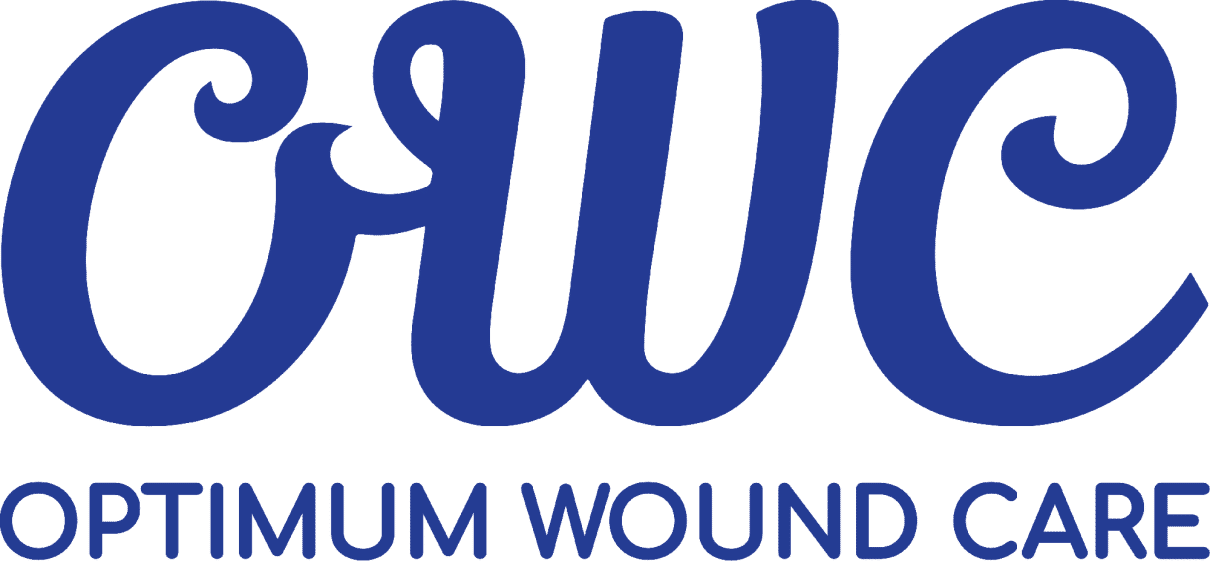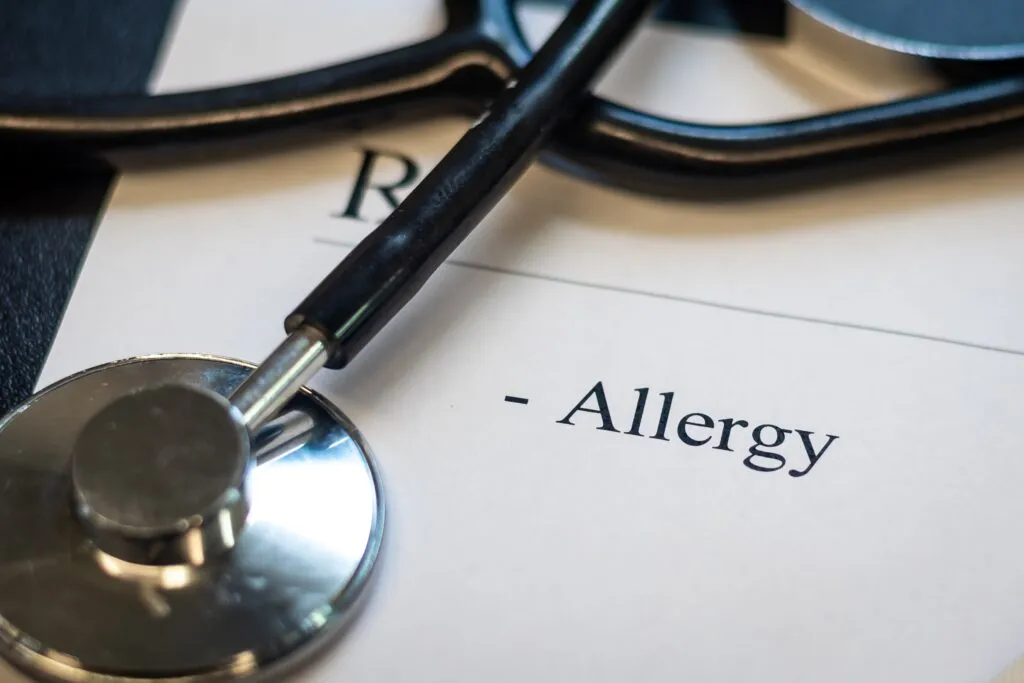Can Allergies Affect Wound Recovery?
You scraped your arm. Just a little. It bled. It stung. You cleaned it up and covered it—expecting normal wound recovery.
But then the itching started. Then swelling. And now it’s red. Puffy. Slower to heal than expected.
You wonder—is it infected? Or maybe… something else?
Allergies might not be the first thing you think of when a wound won’t heal. But according to Cleveland Clinic, allergic reactions can ramp up your body’s inflammation response—impacting how your skin repairs itself.
And it’s not just pollen or pet dander. Contact allergies from bandages, antibiotic creams, or even soaps can cause irritation, delay healing, and increase risk of infection.
NIH studies confirm that people with allergies often have altered immune activity, which can make wound recovery slower or more complicated.
At OWC Center, we see this often: A cut that won’t close. A scrape that keeps itching. A wound that just won’t heal—because the immune system is fighting on too many fronts.
Below, we’ll explore how allergies and wound healing are connected—and what you can do about it.
The Immune Response: Your Body’s Healing First Responder
When you get a wound, your body jumps into action. Fast. And at the center of that process? The immune response.
How Healing Normally Works
- Inflammation Phase: White blood cells rush in. They destroy bacteria and clear out dead tissue.
- Proliferation Phase: New tissue begins forming. Blood vessels rebuild.
- Maturation Phase: Collagen reshapes the skin and finishes the repair.
But when you have allergies, this timeline gets messy.
Your immune system is already on high alert. It’s treating harmless triggers like pollen or food as dangerous invaders. That means fewer immune resources are left to focus on healing.
The Allergy Disruption
- Histamines released during an allergic reaction cause itching and swelling, which aggravates wounds.
- Constant inflammation disrupts the growth of new tissue.
- Skin barriers become weaker, increasing the chance of infection.
And when allergies like eczema or hay fever are part of your daily life, your body may be less responsive to new injuries.
Delayed Healing: What to Watch for When Allergies Are in Play
Allergic reactions don’t just affect your nose and throat. They affect your skin. Your circulation. Your entire healing process.
5 Warning Signs Your Allergies Are Slowing Healing
- Persistent redness or swelling that doesn’t respond to typical care
- Itchiness near the wound, causing repeated scratching and reopening
- Hives or rash around the wound area
- Scabs taking longer to form, or falling off too soon
- Symptoms worsen after exposure to known allergens (e.g., pets, dust, soap)
These signs are more than just annoying. They signal that your immune system may be caught in the crossfire between allergy response and wound repair.
When to Call a Wound Specialist

If your wound has stayed open beyond two weeks, or shows signs of an allergic reaction, it’s time to talk to a specialist. At OWC Center, we offer allergy-safe treatment protocols and skin-friendly dressings that promote healing without irritation.
Medications: How Allergy Drugs Can Help—or Hurt
You might think taking an antihistamine is harmless. And usually, it is. But when you’re healing from a wound, it’s important to know what your medications are doing behind the scenes.
Common Allergy Meds and Their Wound Effects
- Antihistamines (e.g., cetirizine, loratadine):
- Reduce itching and inflammation
- Help you avoid scratching
- Topical corticosteroids (e.g., hydrocortisone):
- Calm swelling
- May delay healing if overused
- Oral corticosteroids (e.g., prednisone):
- Suppress immune function
- Can prolong wound recovery
Pro tip: Never self-medicate during wound recovery without checking with your provider. Medications can have unintended consequences—even when they feel like the right choice.
📍 Schedule a personalized wound consultation.
Home and Clinical Solutions for Allergy-Sensitive Wound Healing
You don’t have to choose between treating your allergies and healing your wound. At OWC Center, we help patients create an integrated care plan that does both.
5 Ways OWC Center Supports Allergy-Prone Healing
- Allergy-safe wound dressings free of latex, adhesives, and common irritants
- Collaboration with allergists to adjust systemic allergy treatments without disrupting healing
- Gentle wound cleaning protocols using non-reactive solutions
- Comprehensive wound assessment to identify allergy-related delays
- Education and prevention—so you know what to avoid in the future
📍 Meet our compassionate wound care team.
When wound recovery linger, it’s easy to focus only on what’s visible—swelling, scabbing, or delayed closure. But often, the issue goes deeper, into the immune system itself. For patients with allergies, even a minor scrape can become a drawn-out challenge. The body’s attempt to protect against allergens like pollen, pet dander, or certain topicals ends up pulling vital immune resources away from healing. This leads to more inflammation, more itching, and more vulnerability to infection.
Understanding how the immune response operates under allergic pressure gives us better insight into why some wounds don’t follow the usual path to recovery. And with that understanding comes clarity: the right wound care plan isn’t just about treating the injury—it’s about addressing what’s happening internally.
At OWC Center, our approach is both gentle and strategic. We don’t treat every wound the same. We look at your allergies, your medications, and your immune health as part of the bigger picture. Whether it’s by using non-reactive dressings, collaborating with your allergist, or tailoring your home care routine, we’re here to make healing feel possible again—without added stress or surprises.
For anyone navigating the frustrating overlap between skin sensitivity and slow healing, know this: there’s a better way forward. One rooted in personalized care, immune-awareness, and real results.
Key Takeaways
1. Allergies can slow down healing more than you think.
If you’re experiencing itching, swelling, or redness around a wound that won’t go away, your allergies may be interfering with recovery. Chronic inflammation and immune response issues are common in allergy-prone patients—and deserve specialized attention.
2. Your immune system plays a central role in wound recovery.
From fighting off infection to rebuilding healthy skin, the immune response drives every stage of healing. When it’s overactive from allergy triggers, recovery stalls. Our advanced wound healing protocols help redirect immune support back to where it’s needed most—your wound.
3. Not all allergy medications are helpful during healing.
Some medications can relieve symptoms without disrupting recovery, while others, like oral steroids, may suppress healing. Consult with our wound care team before starting or continuing any allergy treatment if you have an open wound.
4. Look for signs that an allergic reaction is affecting your wound.
Itchy skin, prolonged redness, delayed scabbing, and rashes around the wound may all point to an allergy-related complication. Our skin-sensitive treatment plans are designed to reduce irritation and speed up recovery safely.
5. OWC Center offers integrated care for allergy-prone patients.
We don’t just treat wounds—we treat people. Our team provides personalized wound care solutions that consider your allergies, medications, and skin sensitivities. Healing is possible—and we’re here to help you get there with comfort and confidence.
5 Related Questions Answered
1. Can Allergies Really Slow Down Wound Healing?
Yes—your body’s allergic response can absolutely affect how quickly you heal. When you experience an allergy, your immune system goes into overdrive. This hyperactive state can draw resources away from healing, cause localized inflammation, and even lead to tissue irritation around the wound.
Here’s how:
- Histamine release causes swelling and itching, which can worsen wound irritation
- Increased inflammation may delay the body’s ability to regenerate new skin cells
- Allergic skin reactions can introduce bacteria through scratching, which increases infection risk
If you’re already managing conditions like eczema, hay fever, or asthma, your immune system might not respond optimally to a wound. This creates an environment where healing is either slowed or complicated by repeated flare-ups.
2. What Is the Immune Response Doing During Wound Healing?
Healing is a complex biological process—one that depends heavily on your immune system. In a typical wound, the immune response goes through several stages:
- Stage 1: Inflammation – Immune cells rush to the wound to fight bacteria and begin cleanup
- Stage 2: Proliferation – New cells begin forming to replace damaged tissue
- Stage 3: Maturation – Collagen is remodeled and the wound closes fully
But in people with allergies, the immune system is often already occupied with non-threatening invaders like pollen or pet dander. That means fewer resources are available for wound healing—and more chances for complications like infection or excessive inflammation.
3. Can Allergy Medications Help or Hurt My Wound Recovery?
It depends. Many allergy medications reduce inflammation, which can be beneficial during wound healing. However, others—like corticosteroids—can suppress immune activity and delay tissue regeneration.
Here’s a quick guide:
- Antihistamines (e.g., loratadine, cetirizine): Generally safe; reduce itch and prevent scratching
- Topical steroids (e.g., hydrocortisone): Can reduce inflammation but may delay healing if overused
- Oral steroids (e.g., prednisone): Suppress immune response and may slow healing in some cases
Always consult your wound care specialist or primary care provider before combining allergy treatments with wound management protocols. At OWC Center, we coordinate care to avoid any conflicting treatments.
📍 Schedule a personalized wound consultation
4. What Signs Show That an Allergy Is Interfering with Healing?
Some common signs that allergies may be impacting wound healing include:
- Persistent redness or swelling around the wound despite treatment
- Itchy skin near the wound, which leads to scratching and reopening
- Rash or hives developing in areas adjacent to a healing site
- Delayed scabbing or prolonged open wound
- Flare-ups after exposure to known allergens (e.g., pollen, food, detergents)
If you notice these patterns, it’s important to let your wound care provider know. The wound may need a different dressing, topical therapy, or allergy-safe cleaning products.
5. How Can OWC Center Help Patients with Allergies and Wound Healing?
At OWC Center, we understand that every patient’s immune system is unique. That’s why our care plans take allergies and sensitivities into account. Here’s how we help:
- Allergy-safe wound dressings that won’t trigger irritation
- Close collaboration with allergists and primary care providers
- Tailored wound cleaning protocols using gentle, non-reactive solutions
- Integrated treatment planning that supports immune health and wound recovery
- Educational support for avoiding common allergy triggers
You don’t have to choose between managing your allergies and healing properly. We’ll help you do both—safely and effectively.




